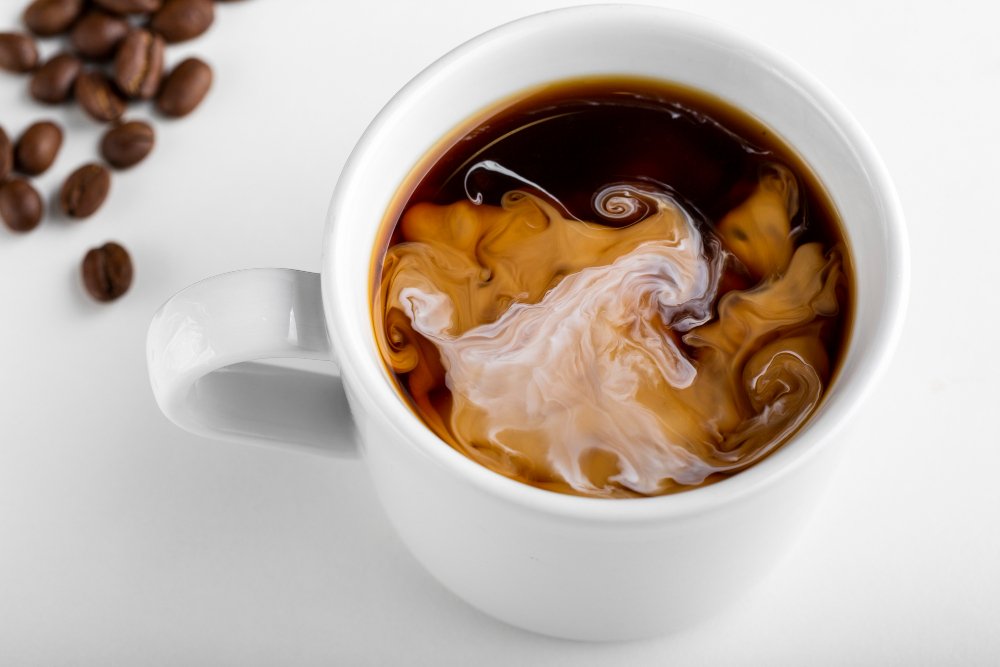Decaffeinated coffee offers the joys of coffee without the jitters, making it a preferred choice for those looking to cut down on caffeine. Among the various methods used to decaffeinate coffee, water processing is celebrated for its natural and chemical-free approach. This method not only preserves the coffee’s flavor but also ensures a cleaner cup.
In this article, we’ll explore what water processed decaf coffee is, how it’s made, and why it’s a great option for coffee enthusiasts seeking a caffeine-free experience.
What Is Water-Processed Decaf Coffee?
Water-processed decaf coffee refers to coffee that has been decaffeinated using only water, temperature, and time, without the use of chemical solvents. The most popular form of water processing is the Swiss Water® Process, a method developed in Switzerland in the 1930s and refined in the decades since.
This technique focuses on maintaining the coffee’s natural flavors while effectively removing most of the caffeine content, making it a preferred choice for those who value both taste and health.
How Does Water Processing Work?
The water processing method involves a detailed, multi-step procedure to remove caffeine while preserving the coffee’s essential oils and flavor compounds. Here’s how it works:
1. Soaking the Beans
Green coffee beans (unroasted) are soaked in hot water to dissolve caffeine and flavor compounds.
2. Filtering the Caffeine
The water is passed through activated carbon filters that selectively trap caffeine molecules, leaving the flavor compounds in the water.
3. Creating a Flavor-Rich Solution
The filtered water, now rich in coffee flavor but caffeine-free, is used to soak a new batch of beans. This step ensures that only caffeine is removed from the beans, not their flavors.
4. Repetition for Thorough Decaffeination
The process is repeated several times until the coffee beans are at least 99.9% caffeine-free.
Why Choose Water-Processed Decaf Coffee?
1. No Chemicals Involved
Unlike other decaffeination methods that use solvents like methylene chloride or ethyl acetate, water processing relies solely on water and filtration. This makes it a cleaner, more natural option for decaf coffee drinkers.
2. Preservation of Flavor
Water processing focuses on retaining the coffee’s unique taste profile. This means you can enjoy the same rich, aromatic flavors as regular coffee, without the caffeine.
3. Eco-Friendly Process
The water process is considered environmentally friendly due to its reliance on renewable resources and its lack of chemical waste.
The Taste of Water-Processed Decaf Coffee
Water-processed decaf coffee often surprises drinkers with its vibrant and full-bodied flavor. Since no chemical solvents are used, the beans retain their origin-specific characteristics, such as fruity, nutty, or chocolaty notes.
The exact flavor profile depends on the coffee’s origin and roast level, but you can expect:
- Bright Acidity: For coffees sourced from high-altitude regions.
- Rich Body: Common in Central and South American coffees.
- Smooth Sweetness: A hallmark of water-processed decaf.
Health Benefits of Water-Processed Decaf Coffee
Decaf coffee offers several health benefits, especially for those who are sensitive to caffeine or looking to reduce their intake. Water-processed decaf is particularly advantageous because of its natural approach.
1. Reduced Caffeine Sensitivity
Water-processed decaf contains less than 0.1% caffeine, making it an excellent choice for those who experience restlessness, heart palpitations, or sleep disturbances from regular coffee.
2. Rich in Antioxidants
Even without caffeine, decaf coffee is packed with antioxidants like chlorogenic acid, which can help combat inflammation and oxidative stress.
3. Gentle on the Stomach
For individuals with acid reflux or sensitive stomachs, water-processed decaf is a gentler alternative to regular coffee.
Popular Origins for Water-Processed Decaf Coffee
The water process works well with a variety of coffee origins, each offering unique flavor characteristics. Here are some popular choices:
- Ethiopia: Bright and fruity notes, with hints of berry and citrus.
- Colombia: Balanced flavors, often featuring chocolate and caramel undertones.
- Sumatra: Earthy and herbal, with a rich, full body.
- Mexico: Mild and smooth, with nutty and sweet flavors.
How to Brew Water-Processed Decaf Coffee
Brewing water-processed decaf coffee is no different from brewing regular coffee. Here are a few tips to get the best results:
1. Grind Fresh
For optimal flavor, grind your coffee beans just before brewing. Choose a grind size that matches your brewing method—coarse for French press, medium for drip coffee, and fine for espresso.
2. Use the Right Water Temperature
Aim for a water temperature between 195°F and 205°F (90°C–96°C) to extract the best flavors without bitterness.
3. Measure Accurately
Use a coffee-to-water ratio of 1:15 or 1:16 (e.g., 1 gram of coffee for every 15–16 grams of water). Adjust to taste if needed.
4. Experiment With Brewing Methods
Water-processed decaf works well with various brewing methods, from pour-over and AeroPress to cold brew. Experiment to find your preferred method.
Where to Find Water-Processed Decaf Coffee
Many specialty coffee roasters and retailers offer water-processed decaf options. Look for labels that specify “Swiss Water® Process” or “water-decaffeinated” to ensure you’re purchasing beans processed using this method.
Online platforms, local coffee shops, and organic grocery stores are excellent places to start your search.
Supporting Ethical Coffee Practices
Water-processed decaf coffee often comes from farms that prioritize sustainability and fair trade. By choosing these coffees, you’re not only enjoying a cleaner cup but also supporting ethical and environmentally conscious practices in the coffee industry.
Conclusion
Water-processed decaf coffee is an excellent choice for those seeking a caffeine-free experience without compromising on flavor or quality. Its natural, chemical-free approach ensures a pure and enjoyable brew, whether you’re savoring a fruity Ethiopian cup or a smooth Colombian blend.
By choosing water-processed decaf, you can indulge in the rich world of coffee while aligning with health-conscious and eco-friendly values. Give it a try, and discover how satisfying decaf coffee can truly be!



